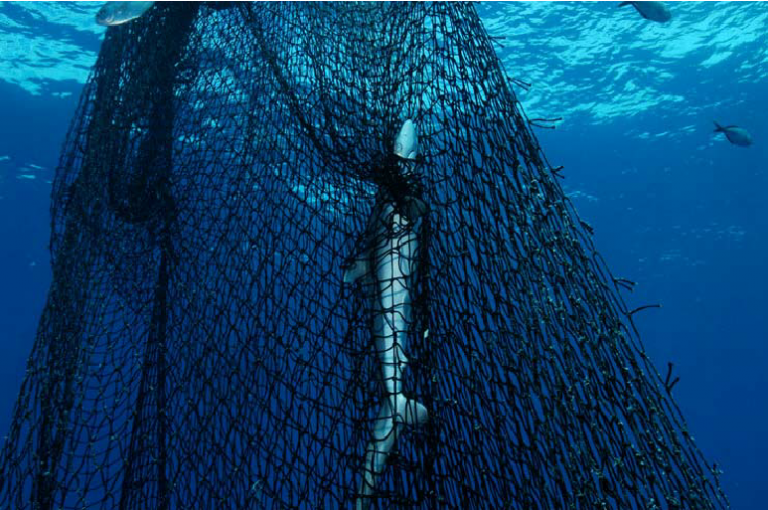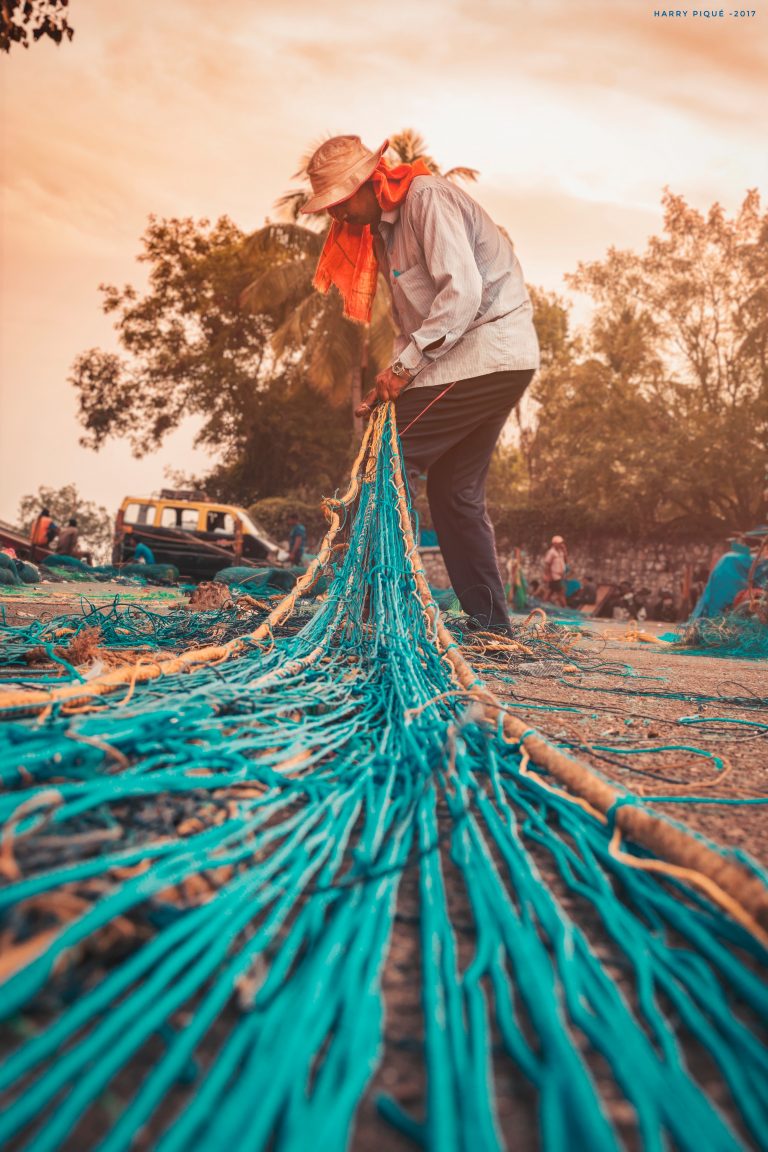
Funded by the inaugural Joanna Toole Ghost Gear Solutions Award, as a legacy to the late animal advocate, we have launched the ‘Ghost Net Retrieval Project’ in the Maldives which aims to incentivise coastal fisheries to collect and upcycle lost and abandoned ghost nets they encounter whilst fishing.
In the world’s ocean today, marine wildlife are facing a constant existential threat. Commercial fishing ships, which can use nets of up to 6,500 ft (2,000 m) in length and 650 ft (200 m) in depth, lose or abandon vast amounts of fishing gear each year, which can drift for years at sea. These discarded nets, drifting FADs and other fishing equipment, become known as “ghost gear.” Ghost gear has a devastating impact on local marine ecosystems by damaging reefs, injuring and killing marine wildlife trapped in floating nets.
In partnership with the Olive Ridley Project, this project is aimed at incentivising Maldivian fishers to collect ghost gear they encounter during their fishing operations. As a result, the Maldivian fishing industry is primed to remove foreign ghost nets at-sea. Currently, the project is ready to be piloted by the local one-by-one tuna catching sector working off Gemanafushi Island, in the southern region of the Maldives.

In February 2020, IPNLF held a meeting with the local island council in Gemanafushi, fishing industry members and the local Women’s Development Committee (WDC). We were met with enthusiasm from all groups to collaboratively remove dangerous ghost gear from the surrounding waters. With the support of local stakeholders, IPNLF has helped to establish new protocols for the retrieval and inshore collection and storage of this gear by local fishers. This will not only help to remove ghost gear, but also promote the safe disentanglement of marine life caught in these nets. During these talks, the state fish purchasing company MIFCO generously volunteered facility space to house this recovered gear, and the Women’s Development Committee has also agreed not only to help in the processing of these materials, but also in the repurposing of recovered gear into various items that can be resold and recycled.
This provides a crucial final link in the new proposed circular economy surrounding ghost gear. The Women’s Development Committee hopes this system will allow them to be self-sustaining through the creation and sale of ghost net-derived products. The IPNLF and ORP will work closely with the WDC and local community to develop this process and create value from an otherwise waste material.
While the process of removing and repurposing ghost gear has been established, pandemic restrictions on fishing trips due to COVID-19 have stopped collection work from hitting its stride.
In spite of this, IPNLF has continued to work with partners so that all parties are ready to put these new procedures into practice as soon as restrictions are lifted. Based on the data collected so far, IPNLF is confident that local communities will now be able to recover and repurpose more ghost gear by weight than which is lost by fisheries, resulting in continued reduction of dangerous ghost gear and clearing of the waters around the island.
As the first winners of the Joanna Toole Ghost Gear Solutions Award, IPNLF looks forward to a continued partnership with the local communities who are engaged to help remove and repurpose this gear, and establish a sustainable ecosystem for future generations.